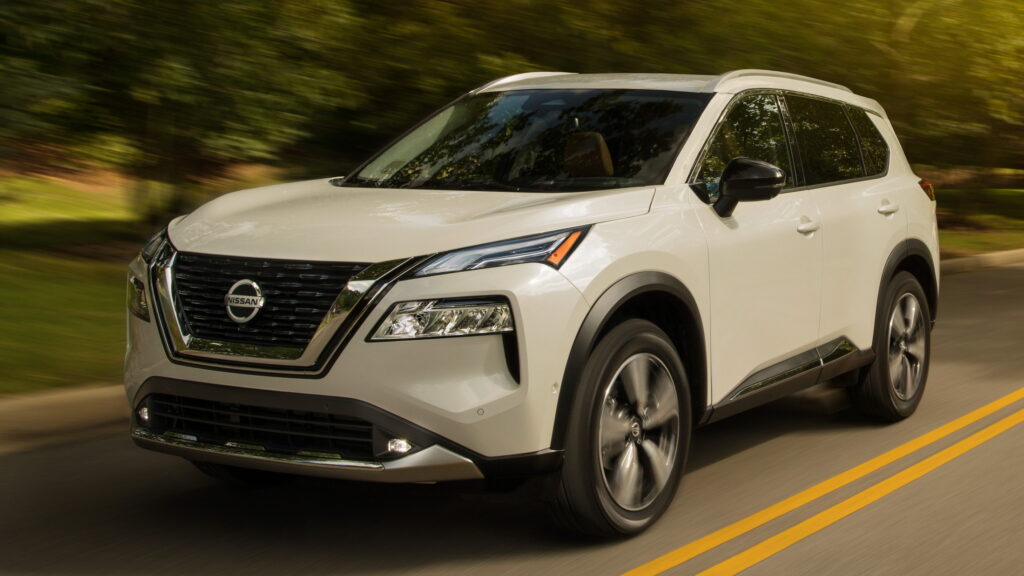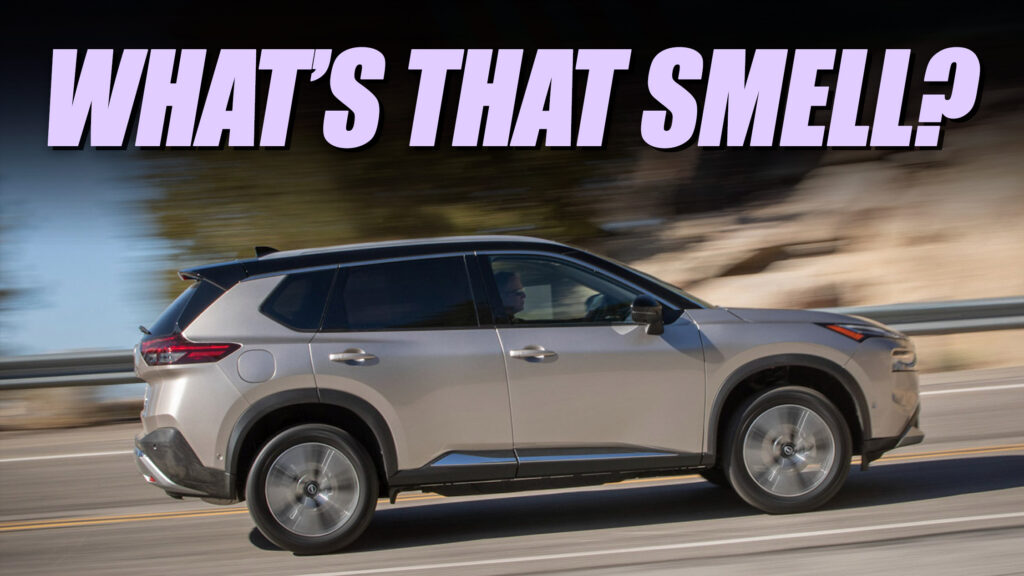- Owners of 2021-2023 Rogues are suing the automaker due to strong gas fumes infiltrating the cabin.
- They claim that they’ve been knocked back by dealers who say they’re aware of the issue but have no fix.
- Nissan denies liability, claiming customer complaints don’t support allegations of fraudulent concealment.
The third-generation Nissan Rogue may be a giant leap forward compared to its predecessor, but according to a recently filed lawsuit, 2021-2023 models come with an unwelcome feature: a pervasive smell of gas fumes infiltrating the cabin. The issue is allegedly caused by defects in the positive crankcase ventilation (PCV) system.
The lawsuit, lodged in the United States District Court for the Middle District of Tennessee, is on behalf of Michael E., Kelly W., and other owners. It specifically targets Rogue models equipped with Nissan’s 1.5-liter turbocharged three-cylinder engine, alleging that faulty components in the PCV system allow fuel to seep through porous rubber components.
The fumes reportedly enter the cabin, causing occupants to feel ill and posing a safety risk to both passengers and bystanders.
Read: 2022 Nissan Rogue’s New 1.5 Turbo Has Fewer CCs, More Gee-Gees
The plaintiff, Michael E., purchased his 2023 Rogue in December 2022 from authorized Nissan dealership Jeffrey Automotive Group. Shortly after, he noticed the strong gas fumes. Upon taking the vehicle to the dealership, he was informed that while the gas odor was a known issue, no repairs were available.
Similarly, Kelly W., who also owns a 2023 Rogue, began noticing the smell of gas about a month after purchase. Her dealer, O’Brien Nissan, confirmed awareness of the issue but stated that Nissan had no solution at the time.

The lawsuit references several customer complaints filed with the National Highway Traffic Safety Administration (NHTSA) regarding these odors. One owner complained, “The fumes are so strong that they give us extreme headaches, dizziness, and nausea,” while another stated, “When I drive for 20 miles or so and turn the vehicle off for a short period, then restart it, I smell gas, and the fumes make me sick and my eyes water at times.”
Nissan argues that the plaintiffs are relying on “anonymous” online complaints they found after purchasing their SUVs. The company also claims the plaintiffs are wrong in asserting that Nissan should have known about the fuel odor issue. Furthermore, Nissan states that neither set of presented “facts” is “sufficient to support the underlying allegation of fraudulent concealment that their unjust enrichment claim hinges upon.” As a result, Nissan has asked the court to dismiss the case.




